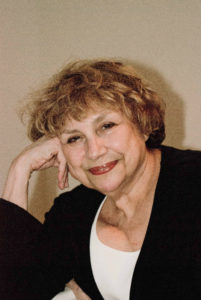Doctor Curmudgeon® And Yet….I Have Never Read It!
[AdSense-A]
 By Diane Batshaw Eisman, M.D. FAAP Doctor Eisman, is in Family Practice in Aventura, Florida with her partner, Dr. Eugene Eisman, an internist/cardiologist
By Diane Batshaw Eisman, M.D. FAAP Doctor Eisman, is in Family Practice in Aventura, Florida with her partner, Dr. Eugene Eisman, an internist/cardiologist
I think longingly of robots.
And I have no idea why.
Since childhood, they have fascinated me.
Oh, to have my very own robot!
My robot must not only be functional and intelligent.
It should look and speak like Stephen Fry as the great Jeeves, that most elegant butler created by P.G. Wodehouse.
However, the only robotic creatures that I find in my price range are vacuums that clean while bumping into the legs of chairs and people, They don’t always recognize landings and so they fall down the stairs. Just not my kind of robot.
Somewhere in the vague, dim reaches of my childhood, I remember hearing about a play. It was called R.U.R. It stood for Rossum’s Universal Robots. The author was a Czech journalist who had had earned a doctorate in Philosophy.
The son of a country doctor in Prague, his name is Karel Čapek. And there is confusion (of course!) about who invented the word ‘robot.’ Čapek himself gave all the credit to his brother. Robot comes from the Czech word robota, which refers to a kind of forced labor.
I have never read the play. Even as a child, I realized that it must be too serious and more than a little scary. I did not like scary reads. The Lewis Carroll books, Little Women and the Oz series satisfied my literary appetites. R.U.R. was about a factory that created humanlike machines in order for them to serve humans.
A scientist decided to make them even more humanoid and they began to dominate mankind. Of course there is a happy ending, and at the last moment, all is saved!
Being influenced by American liberalism, Čapek’s later writings expressed his fear of Fascism and dictatorship and became more politically charged as he extolled freedom of speech
From just having seen excerpts and never having read the play, it seems that Ĉapek was warning against thinking too simplistically and ignoring the consequences of what may seem to be logical thinking.
And thus, once again the scattered mind of Doctor Curmudgeon leaps around beginning with musings about a very friendly robot to a Czech journalist and philosopher, one of the early science fiction writers.
Čapek had a sister called Helena and I am pleased to present one of his quotes, “People should be a little loony, Helena. That’s the best thing about them.”
As a duly registered Board Certified Curmudgeon, I heartily agree!
Dr. Curmudgeon suggests “Bitter Medicine”, Dr. Eugene Eisman’s story of his experiences–from the humorous to the intense—as a young army doctor serving in the Vietnam War.
Bitter Medicine by Eugene H. Eisman, M.D. –on Amazon
Doctor Curmudgeon® is Diane Batshaw Eisman, M.D., a physician-satirist. This column originally appeared on SERMO, the leading global social network for doctors.
SERMO www.sermo.com “talk real world medicine”
[si-contact-form form=’2′]

